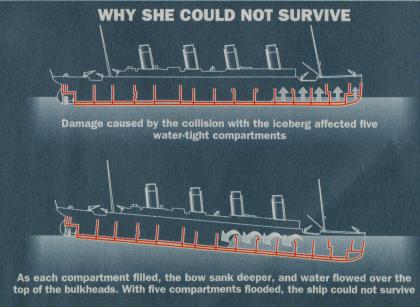Men compartmentalize their thinking. I heard this first from a psychologist who spoke with us in Relief Society about pornography and sex addiction. (See Dennis Prager’s take on the visual male.) Over the years, in various wards, we have had several lessons or presentations or talks about the dangers of porn. Some better than others. One year, they had the men and women meet during the third hour, and they showed us a movie that was intended to discourage pornography, but I’m pretty sure it was way too suggestive for the male brain. It was a documentary about a woman porn star. Yep. I don’t think the church should actually be teaching sex education. Or supervising it.
The male mind tends to focus on one thing at a time, solving problems in a straight line, blocking out extraneous data. I am always annoyed to see my husband watch three different shows at one time, alternating at commercial breaks. That drives me insane.
“Men are good at compartmentalizing their attention.” (Fisher, H., 1999)
The psychologist explained that this is why men, who have cheated on their wives, can seemingly live these two separate lives — they are in two different compartments.
Men are also more visual. “In men, the dominant perceptual sense is vision, which is typically not the case with women. All of a woman’s senses are, in some respects, more finely tuned than those of a man.” (Kastleman, M.)
The female mind surveys the parts to see the whole; Fisher calls this web thinking. “Psychologists report that women more regularly think contextually; they take a more ‘holistic’ view of the issue at hand. That is, they integrate more details of the world around them, details ranging from the nuances of body posture to the position of objects in a room.”
My mind constantly shifts from one thought to another as I juggle problems. I can’t really shut it off. My husband tells me, “Deila, you’re thinking too hard.” I can’t help it; my mind floods with everything I have to sort out; there is no compartment for me to contain them.
Having just read about the Titanic, I was fascinated by the ship’s design. One of the builders had designed the Titanic with compartments in the hull so that she would stay afloat even if four compartments filled with water. The breach in the ship caused water to flow into five compartments. Thomas Andrews accessed the condition, reporting back that the Titanic would sink in an hour or two. Designed to stay afloat with four compartments flooded, the fifth spelled ultimate doom. Mathematics is not subjective. The compartments did not seal at the top (the bullheads), so once the water reached the top, it spilled over into the next one, quickly filling the entire hull with water.
I explain to my spouse, “I’m like the Titanic when it began to take on water. My mind is flooded with thoughts of things I must deal with, and it spills over into the next compartment; they’re connected.” Everything floods over my consciousness, demanding attention. I must keep the Titanic afloat. I’m constantly checking the water levels. I don’t compartmentalize.
This is not bad for women. There are many advantages. “Women tend to gather more data that pertain to a topic and connect these details faster. As women make decisions, they weigh more variables, consider more options and outcomes, recall more points of view, and see more ways to proceed.” (Fisher)
“Amy Pascal, president of Columbia Pictures, said, ‘My greatest power as an executive is that I’m a woman.'”


